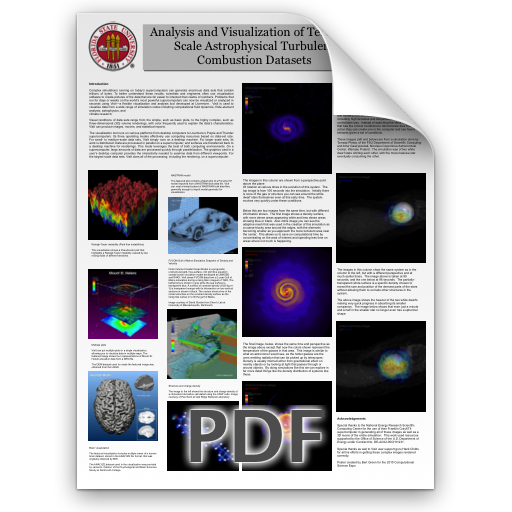
Analysis and Visualization of Terabyte-Scale Astrophysical Turbulent Combustion Datasets
Introduction
Complex simulations running on today’s supercomputers can generate enormous data sets that contain trillions of bytes. To better understand these results, scientists and engineers often use visualization software to create pictures of the data that are far easier to interpret than reams of numbers. Problems that run for days or weeks on the world’s most powerful supercomputers can now be visualized or analyzed in seconds using VisIt—a flexible visualization and analysis tool developed at Livermore. VisIt is used to visualize data from a wide range of simulation codes including computational fluid dynamics, finite-element analysis, astrophysics, and climate research.
Visual renditions of data sets range from the simple, such as basic plots, to the highly complex, such as three-dimensional (3D) volume renderings, with color frequently used to explain the data’s characteristics. VisIt can produce images, movies, and statistical reports.
The visualization tool runs on various platforms from desktop computers to Livermore’s Purple and Thunder supercomputers. Its three operating modes effectively use computing resources based on data-set size. For small- to medium-scale data sets, VisIt simply runs on a desktop machine. For larger scale sets, its work is distributed: Data are processed in parallel on a supercomputer, and surfaces are transferred back to a desktop machine for renderings. This mode leverages the best of both computing environments. On a supercomputer, large amounts of data are processed quickly through parallelization. The graphics card in a user’s desktop computer provides the interactivity needed to examine data from different viewpoints. For the largest scale data sets, VisIt does all of the processing, including the rendering, on a supercomputer.

